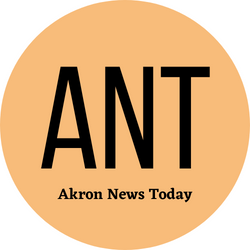Charleston Chimney Inspection: Ensuring a Safe and Efficient Fireplace
by Admin

Introduction
Welcome to our comprehensive guide on Charleston chimney inspection! In this article, we will explore the importance of regular chimney inspections, the potential hazards of neglecting your chimney's maintenance, and how to ensure your fireplace remains safe and efficient. Our team of experts has compiled this in-depth information to help you stay informed and make informed decisions about your chimney's care.
Why is Chimney Inspection Crucial?
A chimney plays a crucial role in your home's heating system, especially if you have a fireplace. Over time, soot, creosote, and debris can accumulate in the chimney, leading to potential blockages. These blockages not only hinder proper ventilation but can also pose serious health and safety risks. A thorough chimney inspection is essential to ensure that your chimney is in top condition, free from any obstructions, and operating efficiently.
Identifying Hazards through Inspection
1. Creosote Buildup
Creosote is a byproduct of burning wood, and it tends to accumulate on the inner walls of the chimney. This sticky and highly flammable substance can lead to chimney fires if left unchecked. During a chimney inspection, we carefully examine the buildup of creosote and determine whether it requires cleaning.
2. Cracks and Damage
Harsh weather conditions and regular use can cause wear and tear on the chimney structure. Over time, cracks may develop, allowing harmful gases, such as carbon monoxide, to seep into your living spaces. A professional chimney inspection helps identify any damage, ensuring prompt repairs to maintain a safe environment.
3. Nesting Animals
Chimneys often provide cozy nesting spots for birds and small animals, especially during colder months. However, these nests can obstruct proper airflow, leading to smoke backflow and potential carbon monoxide poisoning. An inspection enables us to detect any nests and remove them without causing harm to the animals.
4. Blocked Flue
A blocked flue can hinder the proper expulsion of smoke and gases, causing smoke to back up into your home. An inspection will reveal any blockages and enable us to clear them efficiently, restoring proper functionality to your chimney.
The Benefits of Regular Chimney Inspection
1. Ensuring Safety
The most crucial aspect of a chimney inspection is ensuring the safety of your home and family. Identifying hazards and addressing them promptly can prevent dangerous situations such as chimney fires and carbon monoxide leaks.
2. Extending Chimney's Lifespan
A well-maintained chimney can serve your home for many years. Regular inspections, coupled with appropriate repairs and maintenance, can extend the lifespan of your chimney, saving you from costly replacements.
3. Improving Energy Efficiency
A clean and well-functioning chimney allows for proper airflow, which enhances the overall energy efficiency of your fireplace or heating system. This, in turn, can lead to lower utility bills and a reduced carbon footprint.
4. Complying with Insurance Requirements
Many insurance companies require homeowners to conduct regular chimney inspections to maintain their coverage. By adhering to these requirements, you can ensure that your home remains protected in the event of any chimney-related incidents.
When to Schedule a Chimney Inspection
We recommend scheduling Clean Chimney Sweep Charleston at least once a year, preferably before the start of the heating season. This timing allows you to address any issues before they escalate, ensuring a safe and enjoyable fireplace experience throughout the colder months.
However, certain circumstances may warrant more frequent inspections:
1. Heavy Fireplace Usage
If you use your fireplace frequently or for extended periods, more frequent inspections are advisable. Increased usage can lead to faster creosote buildup, requiring regular cleaning.
2. Changes in Weather
Extreme weather events, such as storms or earthquakes, can cause structural damage to your chimney. Following any significant weather changes, it is essential to have your chimney inspected for possible damage.
3. Home Renovations
Any major home renovations, especially those involving the roof or chimney area, should prompt an immediate chimney inspection. Construction work can dislodge debris or create potential hazards within the chimney.
DIY vs. Professional Inspection
While DIY chimney inspections may seem cost-effective, they often lack the expertise and tools needed to identify potential hazards accurately. Professional chimney inspections offer the following advantages:
1. Thorough Examination
Trained professionals perform a comprehensive examination of your chimney, identifying even minor issues that DIY inspections might miss.
2. Safety Measures
Certified chimney inspectors are well-versed in safety protocols and can handle potential hazards safely.
3. Expert Recommendations
In the event of any chimney-related issues, professionals can provide expert recommendations for repairs and maintenance, ensuring your chimney remains in optimal condition.
Conclusion
A well-maintained chimney is essential for a safe and efficient home heating system. Regular Charleston chimney inspection not only ensures the safety of your household but also improves energy efficiency and extends the chimney's lifespan. By understanding the potential hazards and benefits of inspection, you can make informed decisions to protect your home and loved ones.
Introduction Welcome to our comprehensive guide on Charleston chimney inspection! In this article, we will explore the importance of regular chimney inspections, the potential hazards of neglecting your chimney's maintenance, and how to ensure your fireplace remains safe and efficient. Our team of experts has compiled this in-depth information to help you stay informed and…
Recent Posts
- Debunking Common Myths and Misconceptions About Dentures
- Debunking Common Myths and Misconceptions About Dentures
- Effective Strategies for Improving Heating Efficiency in Albuquerque Homes
- The Importance of Managed IT Services for Cincinnati Businesses
- Why Professional Mold Removal is Crucial for Effective Mold Management in Queens and Staten Island
